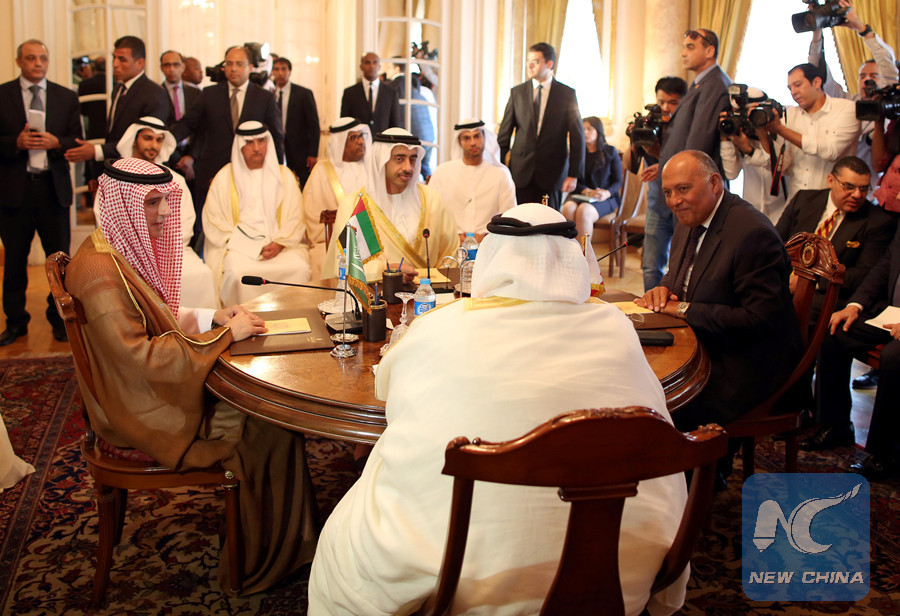
Saudi Foreign Minister Adel al-Jubeir (2-L), UAE Foreign Minister Abdullah bin Zayed al-Nahyan (L), Egyptian Foreign Minister Sameh Shoukry (R), and Bahraini Foreign Minister Khalid bin Ahmed al-Khalifa (2-R) meet to discuss the diplomatic situation with Qatar, in Cairo, Egypt, July, 5 2017. (Reuters photo)
CAIRO, July 5 (Xinhua) -- Foreign ministers of Egypt, Saudi Arabia, the United Arab Emirates (UAE) and Bahrain started a meeting on Wednesday afternoon in the Egyptian capital Cairo to discuss their blockade on Qatar.
The meeting came on Egypt's invitation after the extra grace period given to Qatar to respond to their demands was over.
The four Arab states accuse Qatar of supporting terrorism and interfering in their domestic affairs. Among their 13 demands, they want Qatar to sever ties with Iran, extradite some figures wanted by the four states, cut all relations with terror, sectarian and ideological organizations such as al-Qaeda, the Muslim Brotherhood and Hezbollah, and shut down its Al-Jazeera TV channel.
"The four countries received the Qatari response on the demands through Kuwait and they will reply to it at the right time," said a statement issued by the four states earlier on Wednesday.
On June 5, Egypt joined the Gulf countries of Saudi Arabia, the UAE and Bahrain in imposing a blockade on Qatar, accusing the latter of sheltering members of terrorist organizations and interfering in other countries' domestic affairs, which Doha has repeatedly denied.
Egypt's administration, led by President Abdel-Fattah al-Sisi, accuses Qatar of supporting and hosting fleeing members of Muslim Brotherhood, an organization blacklisted by the Egyptian government.
The Brotherhood supports former Islamist President Mohamed Morsi, who was toppled by the military in July 2013 in response to mass protests.
Among the five other Gulf Cooperation Council states, Kuwait and Oman did not join the anti-Qatar blockade and the Kuwaiti leadership has been playing a mediation role for a solution to the crisis.

